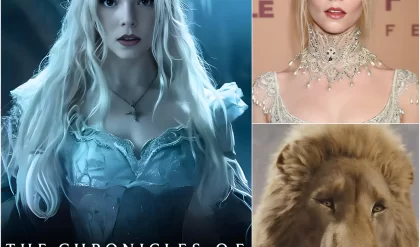The Hobbit Vs. The Lord Of The Rings
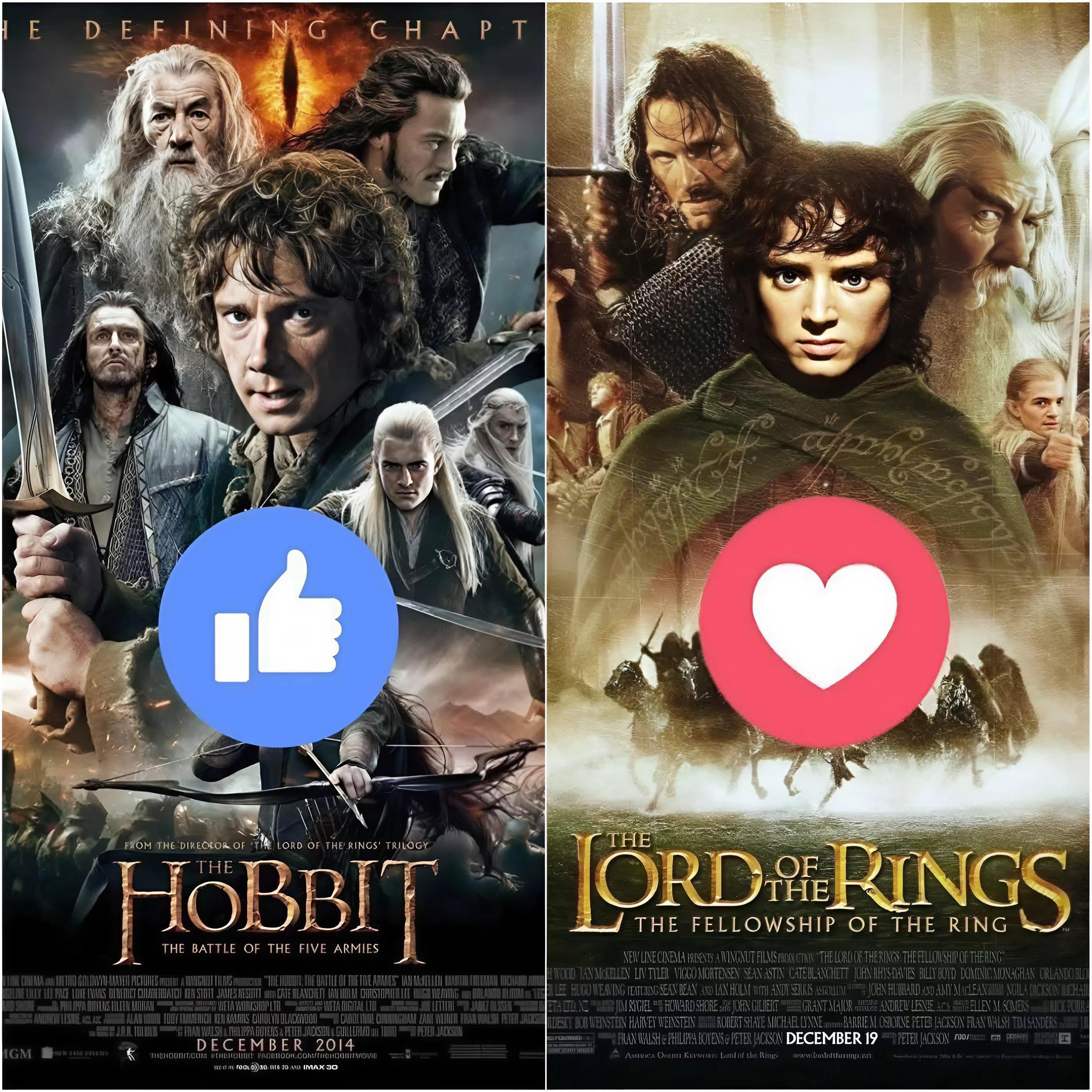
J.R.R. Tolkien’s Middle-earth has captivated audiences for decades, first through his seminal novels and later through Peter Jackson’s cinematic adaptations. The Hobbit and The Lord of the Rings, both literary and filmic masterpieces, have sparked endless debates among fans about which story reigns supreme. While both share the same rich universe, they differ significantly in tone, scope, and execution, each offering unique strengths that fuel passionate discussions. As we revisit these iconic tales in 2025, with Middle-earth still thriving through adaptations like The Rings of Power and The War of the Rohirrim, it’s worth exploring what sets The Hobbit apart from The Lord of the Rings and why each holds a distinct place in fantasy lore.
The Hobbit, first published in 1937, is a compact, whimsical adventure centered on Bilbo Baggins, a reluctant hobbit swept into a quest with thirteen dwarves and the wizard Gandalf to reclaim the dwarves’ treasure from the dragon Smaug. Its tone is light-hearted, written originally as a children’s story, with a straightforward narrative that emphasizes personal growth, camaraderie, and the allure of adventure. Tolkien’s prose sparkles with charm, weaving songs, riddles, and a cozy sense of wonder that makes the novel accessible to all ages. The story’s simplicity—spanning a single book of about 300 pages—allows for a brisk pace, moving from one vivid encounter to another, whether it’s trolls, goblins, or the enigmatic Gollum. This brevity and focus on Bilbo’s transformation from a homebody to a hero give The Hobbit a distinct, intimate appeal.
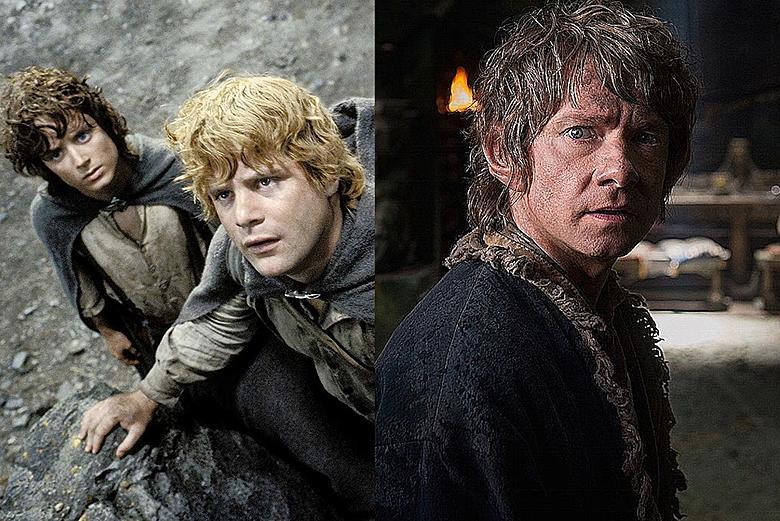
In contrast, The Lord of the Rings, published in 1954–55, is an epic saga of unparalleled depth. Spanning three volumes and over 1,000 pages, it follows Frodo Baggins and the Fellowship on a quest to destroy the One Ring and defeat the Dark Lord Sauron. Its tone is grand and somber, grappling with themes of sacrifice, power, and the corrupting nature of evil. Tolkien’s world-building expands exponentially, with intricate histories, languages, and cultures detailed in extensive appendices. The narrative weaves multiple threads—Frodo’s journey, Aragorn’s rise, and the war for Middle-earth—creating a sprawling tapestry that feels both mythic and deeply human. This complexity makes The Lord of the Rings a monumental work, often compared to literary classics for its philosophical weight and emotional resonance.
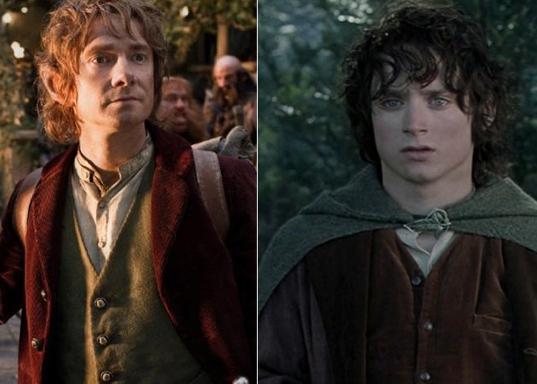
Peter Jackson’s film adaptations amplify these differences. The Lord of the Rings trilogy (2001–2003) is widely regarded as a cinematic triumph, earning 17 Academy Awards, including Best Picture for The Return of the King. Its meticulous blend of practical effects, groundbreaking CGI, and Howard Shore’s stirring score brought Tolkien’s epic to life with unprecedented scale. The films balance intense battles, like Helm’s Deep, with intimate character moments, capturing the novels’ emotional depth. Critics and fans alike praise its fidelity to Tolkien’s spirit, despite some cuts, like the omission of Tom Bombadil. The trilogy’s cultural impact was seismic, redefining fantasy cinema and grossing nearly $3 billion globally.
The Hobbit trilogy (2012–2014), however, faced a tougher reception. Adapting a single, shorter novel into three films—An Unexpected Journey, The Desolation of Smaug, and The Battle of the Five Armies—required significant expansion, drawing from Tolkien’s appendices and adding original subplots, like the romance between Tauriel and Kili. While Martin Freeman’s Bilbo and Benedict Cumberbatch’s Smaug shine, the trilogy’s pacing and reliance on CGI drew criticism for feeling overstretched and less cohesive. The decision to mirror The Lord of the Rings’ epic tone clashed with The Hobbit’s lighter, more whimsical source material, leaving some fans feeling it lacked the original’s soul. Yet, moments like Bilbo’s riddle game with Gollum and the visually stunning Smaug sequence remain highlights, and the trilogy still grossed nearly $3 billion.
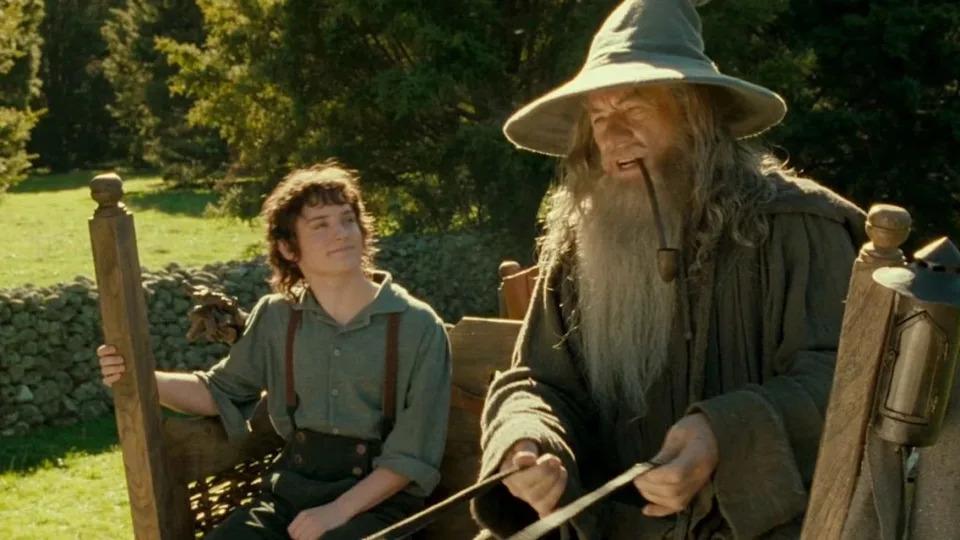
Fans often argue over which is superior. The Hobbit’s defenders appreciate its tighter narrative and playful spirit, with some, like a 2022 Reddit thread, arguing Martin Freeman’s Bilbo feels truer to Tolkien’s vision than Elijah Wood’s Frodo. Others laud its vibrant characters, like Thorin Oakenshield, and its focus on adventure over existential dread. Conversely, The Lord of the Rings’ advocates point to its unmatched depth, emotional stakes, and cultural legacy. A 2019 ScreenRant article notes that The Hobbit’s attempt to replicate The Lord of the Rings’ grandeur diluted its charm, while the latter’s trilogy benefited from richer source material.
Ultimately, comparing The Hobbit and The Lord of the Rings is like comparing a fireside tale to an epic saga. The Hobbit enchants with its simplicity and heart, while The Lord of the Rings awes with its scope and gravitas. Both are essential to Middle-earth’s legacy, offering different lenses on Tolkien’s world. Whether you prefer Bilbo’s jaunty quest or Frodo’s harrowing journey, the debate itself reflects the enduring power of these stories to inspire and unite fans across generations.


